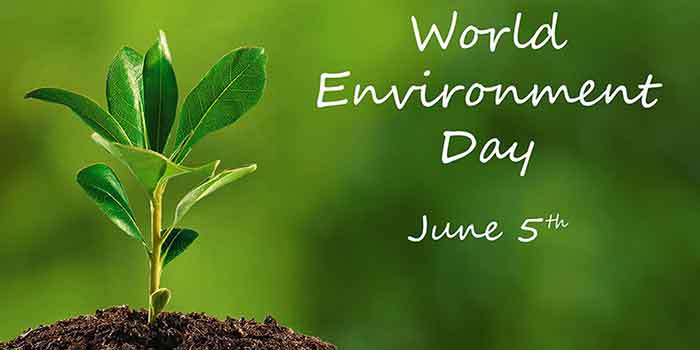
World Environment Day is celebrated annually on June 5th, and it serves as a global platform to raise awareness about environmental issues and encourage positive action. In India, this day holds significant importance as the country grapples with a range of environmental challenges. It is a time to reflect on the state of the environment, acknowledge achievements, and collectively strive for a sustainable future. India’s diverse ecosystems, rich biodiversity, and vibrant cultural heritage are deeply intertwined with the environment. However, rapid industrialization, population growth, deforestation, pollution, and climate change pose significant threats to the country’s ecological balance. World Environment Day in India provides an opportunity to focus on these pressing issues and rally individuals, communities, and the government towards a more sustainable path.
Conservation and Restoration
To truly do justice with the day, it is important to engage in meaningful actions that have a lasting impact on the environment. Here are some key areas where efforts can be directed. India is home to several fragile ecosystems, including forests, wetlands, and coastal areas, which need to be conserved and restored. Initiatives such as afforestation drives, protection of wildlife habitats, and sustainable management of natural resources are essential to preserve the country’s biodiversity and maintain ecological balance. The key thing is climate action. India is highly vulnerable to the impacts of climate change, with changing weather patterns, water scarcity, and extreme events becoming increasingly common. World Environment Day serves as a platform to advocate for climate action, promote renewable energy sources, and support initiatives aimed at reducing greenhouse gas emissions.
Waste Management
The rapid growth of urban centers in India has led to mounting waste management challenges. Proper waste segregation, recycling, and promoting the concept of reduce, reuse, and recycle can significantly minimize the burden on landfills and promote a circular economy. Implementing efficient waste collection systems is essential to tackle waste management challenges in India’s rapidly growing urban centers. This involves establishing a comprehensive network of waste collection points strategically placed throughout cities to ensure easy access for residents. Additionally, deploying modern waste collection vehicles equipped with advanced technology can optimize collection routes, reduce fuel consumption, and improve overall efficiency.
Air and Water Pollution
Addressing air and water pollution is crucial for safeguarding public health and the environment. Adopting cleaner technologies, promoting sustainable transportation options, and implementing stringent regulations can help tackle the issue of pollution and ensure cleaner air and water resources. Encouraging the adoption of cleaner technologies is essential to reduce air and water pollution. Promoting sustainable transportation options can significantly contribute to reducing air pollution. Encouraging the use of public transportation, investing in the development of electric vehicles (EVs) infrastructure, and implementing policies to limit vehicular emissions can help minimize the environmental impact of transportation
Environmental Education and Awareness
Building awareness and imparting environmental education at all levels, from schools to communities, is vital. World Environment Day offers an opportunity to educate and empower individuals to make informed choices that contribute to a sustainable future. Incorporating topics such as climate change, biodiversity conservation, waste management, and sustainable practices can raise awareness and empower students to become environmentally conscious individuals. Engaging local communities in environmental education initiatives is vital. Organizing workshops, seminars, and community events on World Environment Day can help disseminate knowledge and encourage participation in sustainability practices. Collaborating with local organizations, NGOs, and experts can enhance the effectiveness of these educational programs.
Sustainable Agriculture
Agriculture plays a crucial role in India’s economy, and adopting sustainable farming practices is essential for food security and environmental sustainability. Encouraging organic farming, reducing chemical pesticide and fertilizer use, and promoting water-efficient irrigation techniques can contribute to a greener and healthier agriculture sector. Encouraging and supporting organic farming practices can reduce reliance on chemical inputs and promote healthier ecosystems. Organic farming methods avoid the use of synthetic pesticides and fertilizers, prioritize soil health through organic matter management, and promote biodiversity conservation. Providing training, technical assistance, and financial incentives to farmers transitioning to organic farming can facilitate its adoption.
Engaging Youth and Communities
The involvement of youth and communities is pivotal in driving environmental change. Empowering young minds through environmental education, organizing community-driven initiatives, and fostering a sense of responsibility towards the environment can create a lasting impact. Providing environmental education to young minds is essential for creating awareness and fostering a sense of responsibility towards the environment. Integrating environmental topics into school curricula, organizing workshops, and promoting extracurricular activities focused on sustainability can empower young individuals to become environmental stewards. To do justice with World Environment Day in India, it is crucial for individuals, organizations, and the government to collaborate and take concrete actions beyond symbolic gestures. Efforts must be aimed at creating long-term sustainable solutions that address the unique environmental challenges faced by the country.
Wrapping up
World Environment Day serves as a reminder that each individual has a role to play in environmental conservation and that collective efforts can bring about significant positive change. By taking responsibility for our actions, making conscious choices, and actively participating in environmental initiatives, we can contribute to a greener, cleaner, and more sustainable India for future generations.
Mohd. Ziyaullah Khan, is a Content Head in a Digital Marketing Agency, is an activist, author and social entrepreneur based in Nagpur.











































